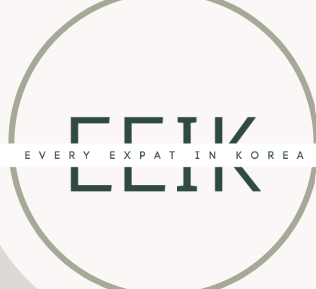South Korea for Expats: A Quick Guide to History, Economy & Why It Matters If You're Moving Here

Thinking of moving to Korea? Whether you're chasing a startup visa, teaching gig, or remote work base in Seoul, understanding the why behind Korea's modern rise gives you more than trivia — it unlocks cultural fluency, visa strategy, and even business etiquette.
Let’s break it down.
From Ruins to Tech Titan: How South Korea Rebuilt Itself
Modern Korea was officially founded in 1948 — but its identity took shape through resistance (1919 independence movement), devastation (1950s war), and relentless reinvention. Post-war South Korea was one of the poorest nations on Earth. Now it’s:
- The 12th largest global economy
- A G20 and OECD member
- A major donor nation (after once surviving on aid)
Want to impress at immigration or in a coffee shop pitch? Mention Korea’s transformation from Cold War buffer state to innovation hub.
Want more context? See: How to Understand Korean Work Culture Without Getting Burned
Democracy with K-DNA
Korea's political DNA blends Confucian formality with grassroots protest. It’s a liberal democracy now, but that wasn’t always the case. After authoritarian growth spurts, a 1987 movement (“June Struggle”) led to the modern democratic era.
Today’s Korea may feel rigid on the surface, but it’s built on hard-won reforms. This matters if you're dealing with:
- Korean bureaucracy (resilience pays off)
- Startup regulations (shaped by chaebol resistance)
- Visa laws (expect caution, not chaos)
Why Expats Should Care About South Korea’s Global Power Status
Korea isn’t just a BTS factory. It ranks:
- 5th in global exports
- 8th in imports
- 9th in foreign exchange reserves
- 6th in military strength
For you? This means:
- Fintech and international banking workarounds
- High import fees on services/products
- Tight surveillance on digital business models
Need to set up your business bank account? Check this bank setup guide for expats
Culture Exports = Soft Power Goldmine
Beyond the GDP stats, Korea’s cultural influence affects your daily life:
- Streaming K-Dramas? That’s local pride.
- Trying to freelance as a makeup artist? Thank K-Beauty.
- Wondering why every teenager around you speaks English like RM from BTS? That's soft power at work.
Korea’s cultural relevance opens doors — but also comes with expectations (aesthetic, etiquette, digital habits).
Want to navigate this? Start with this digital etiquette survival kit for Korea
TL;DR for Expats
| Domain | What It Means for You |
|---|---|
| Economy | You’ll need export-savvy budgeting |
| Politics | Bureaucracy has rhythm — learn the beats |
| Culture | Cultural cache can open gigs or get you ghosted |
| Global Status | Visa, tax, and import policies move fast |
📌 Pro Tip: Want real-time help or just need to vent about banking hours or visa chaos? Join Every Expat in Korea — our FB group where thousands of expats share tips, hacks, and updates that never make it into official guides.
Next Reads to Boost Your Korea Readiness

